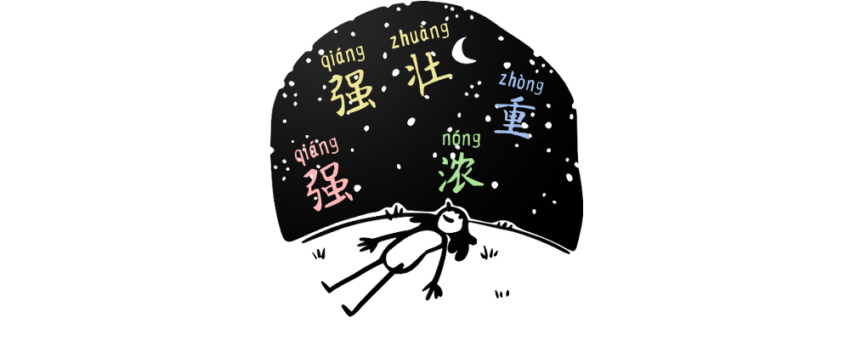強 qiáng and 强壮 qiángzhuàng both can be translated to strong.
Both serve as adjectives. So, if you are looking for a noun like power, or strength, please check the difference between 力气 lìqi and 力量 lìliàng
強壯 / 强壮 qiángzhuàng
强壮 qiángzhuàng indicates the physical conditions or vigor.
多運動可以讓你的身體變得更強壯多运动可以让你的身体变得更强壮
Regular exercise can make your body stronger.
老虎是很強壯的動物老虎是很强壮的动物
The tiger is a strong animal.
他的身體很強壯,所以可以負擔比較重的工作他的身体很强壮,所以可以负担比较重的工作
His body is very strong so he can handle heavier workloads.
強 qiáng
強 qiáng has multiple meanings, but it generally means strong or powerful. It can be used to describe physical or mental strength, as well as influence or authority.
他的個性很強他的个性很强
He has a strong personality.
Note: If you are describing personality or mentality, you can also use 坚强 jiānqiáng
她是一位很堅強的女孩她是一位很坚强的女孩
She is a girl who has a strong character.
如果你需要,我可以給你一些更強的止痛藥如果你需要,我可以给你一些更强的止痛药
I can give you stronger pain-killing drugs if you need them.
雖然他是韓國人,可是他中文非常強虽然他是韩国人,可是他中文非常强
Although he is Korean, he speaks Chinese very well!
重 Zhòng
重 zhòng refers to a strong taste or fragrance, usually characterized by a bold, rich flavor that leaves a lasting impression on the palate. It can also indicate a heavier, more substantial texture or mouthfeel, such as in the case of a thick soup or stew. In terms of taste, 重 zhòng is often associated with umami, the savory taste that is often found in meat, seafood, and fermented products.
這道泰國菜的味道很重,又辣又酸真好吃这道泰国菜的味道很重,又辣又酸真好吃
This Thai dish has a very strong taste. Spicy and sour, it’s delicious!
我覺得這羊肉的味道太重了,根本吃不出其他食物的味道我觉得这羊肉的味道太重了,根本吃不出其他食物的味道
I think the flavor of this lamb is too heavy. I really can not taste other food.
他的香水味太重了!他的香水味儿太重了!
His perfume is way too strong!
濃 / 浓 Nóng
浓 usually describes a taste or aroma that is highly concentrated or dense, with a pronounced and intense flavor. It can be used to describe the richness of a broth or soup, the aroma of a cup of coffee, or the flavor of a sauce or gravy.
這杯咖啡很濃这杯咖啡很浓
This coffee is very strong.
你煮的醬太濃了,加一點水吧你煮的酱太浓了,加点儿水吧
The sauce you cooked is too thick, add some water.
他的香水味太濃了!他的香水味儿太浓了!
His perfume is way too strong!


